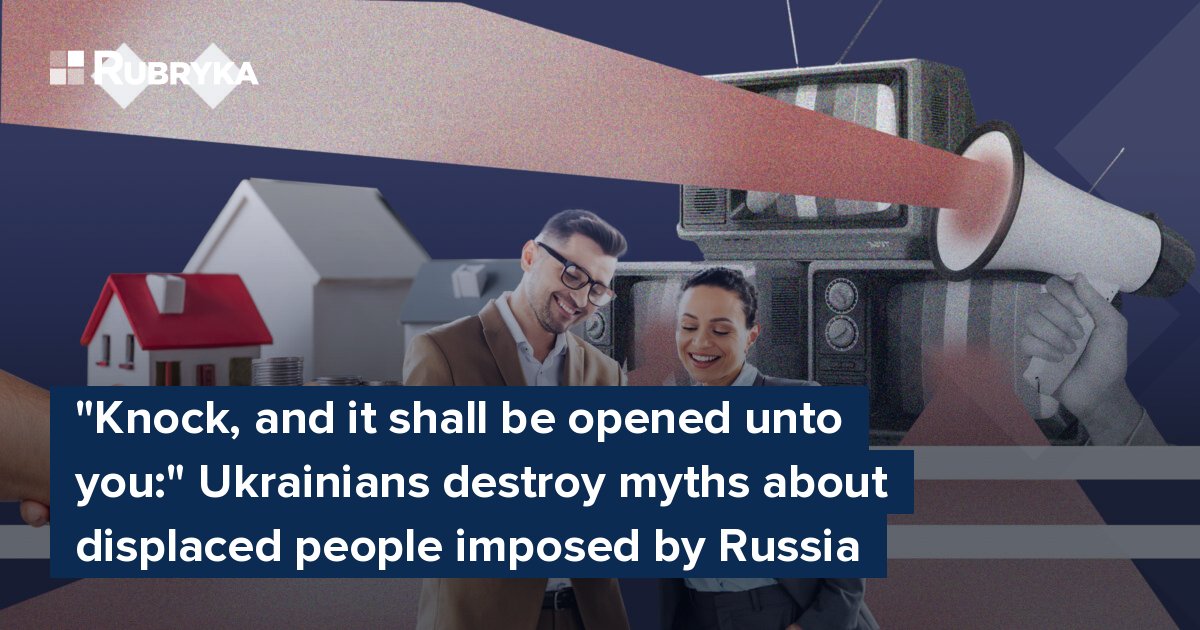
What is the problem?
Myth No. 1: No one is waiting for resettlers
The first thing people who fall under the Russian occupation will lose is their connection with the rest of the world. As soon as Russia seizes a territory, it first blocks people from accessing Ukrainian and foreign sources of information. First, the Russian flag, then Russian television, and only then the Russian worldview — this is how the world works, according to the enemy.
As soon as the Russians enter a city or village, they start convincing the residents that in a free Ukraine, they do not wait for resettlers, do not give them housing, or hire them. This is the first myth that should be destroyed.
According to the Ministry of Reintegration, during the first six months of the war, about seven million Ukrainians have become temporary migrants. Since then, this number has remained more or less constant.
Dnipropetrovsk, Kharkiv, and Zaporizhia regions received 1.9 million IDPs;
- 1.7 million IDPs were sheltered by Lviv, Ivano-Frankivsk, Chernivtsi, Zakarpattia, Ternopil, Khmelnytskyi, Rivne, and Volyn regions;
- 1.6 million IDPs came to Kyiv, Zhytomyr, Chernihiv, and Sumy regions;
- 1.6 million IDPs chose the Kyiv, Zhytomyr, Chernihiv, and Sumy regions;
- 1 million IDPs applied to Vinnytsia, Cherkasy, Kirovohrad, and Poltava regions;
- 0.7 million IDPs temporarily moved to Mykolaiv and Odesa regions.
What is the solution?
"Knock and it shall be opened unto you"
Among all these millions of people who had to say goodbye to their homes are Snizhana and Volodymyr Kernychni. Both spouses cannot walk, but this does not prevent them from dancing — they were the only dancing couple in wheelchairs in the entire Donetsk region. In Slovyansk, Snizhana and Volodymyr had a house and an appropriately equipped training ground, but on February 24, 2022, the Russian invasion destroyed everything.
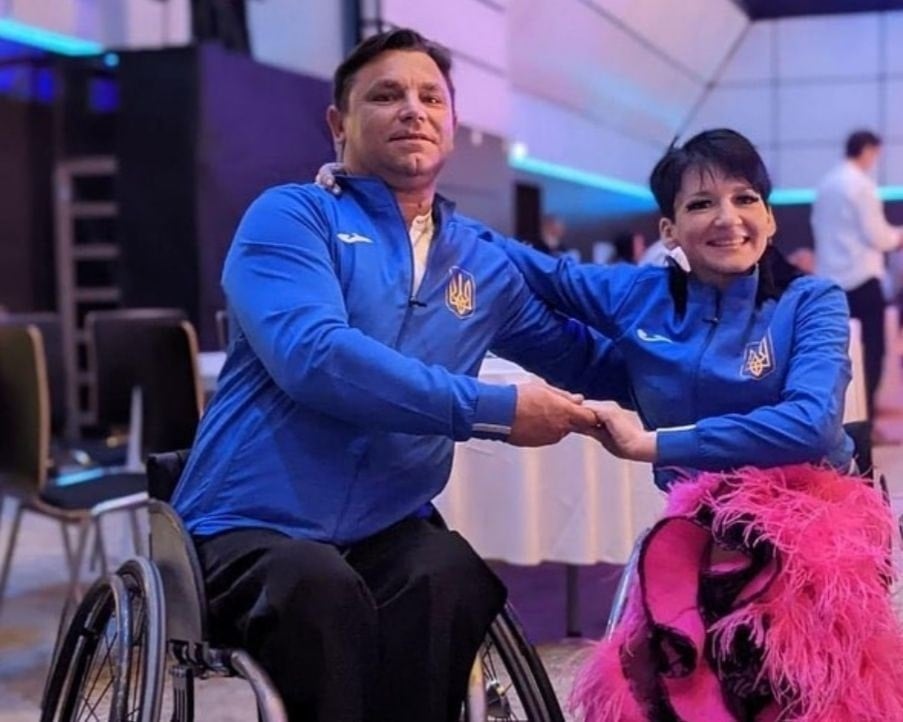
Volodymyr and Snizhana Kernychni participating in one of the dance championships
The couple decided to leave for a safer place and settled in Transcarpathia, in the village of Steblivka. The family found the house without the help of volunteers or authorities. However, one issue remained — Snizhana and Volodymyr are very dependent on their training. To maintain fitness and appropriate skills, classes must be regular, and when it comes to wheelchair dancing, not any free space will be suitable.
In Slovyansk, a couple once equipped a training hall for people with musculoskeletal disorders using grant funds. The couple was engaged in dancing there. However, they did not have such a room in Steblivka.
After learning about a couple of IDPs, the head of the local cultural club, Ivan Dobosh, provided them with a room. Likewise, a couple of dancers and Snizhana's other partner were taken in by a local school. Now the Kernychnyi family works out two or three times a week and is actively preparing for a new international competition.
"I can advise other IDPs only one thing: knock, and it shall be opened unto you. Now the situation in the country is tough and difficult for everyone, so we must treat each other with understanding and restraint. Be kind, and you will definitely get help," concludes Kernychna.
What is the problem?
Myth No. 2: the state abandoned the IDPs to their own devices
The Russians have been planting such a narrative on the Ukrainians since 2014 — since the enemy's flag was hung over the first occupied city — why leave the occupation if you won't get any support beyond the numerous roadblocks on the Ukrainian side?
Russian propagandists are trying to destroy the very essence of Ukrainian statehood and spread the myth that the state is not on the side of the people. However, Ukraine is a democratic state; therefore, Ukrainians do not transfer responsibility to the government but help the state where it cannot cope independently.
What is the solution?
New life of abandoned houses
The Sumy region is one of the border regions where the theater of hostilities unfolded on February 24. However, the Sumy region became a refuge for many IDPs. In one of the host communities, the authorities cooperated with the locals to provide the safest and most comfortable conditions for the families who came there to escape the war.
For example, in the small village of Kapustynsi, Romen district, the local authorities arranged houses that had been abandoned for decades for the displaced people. The head of the village, Svitlana Kulynych, single-handedly went around all the abandoned houses, contacted their owners and heirs, and thus obtained permission to use them for the needs of the displaced people.
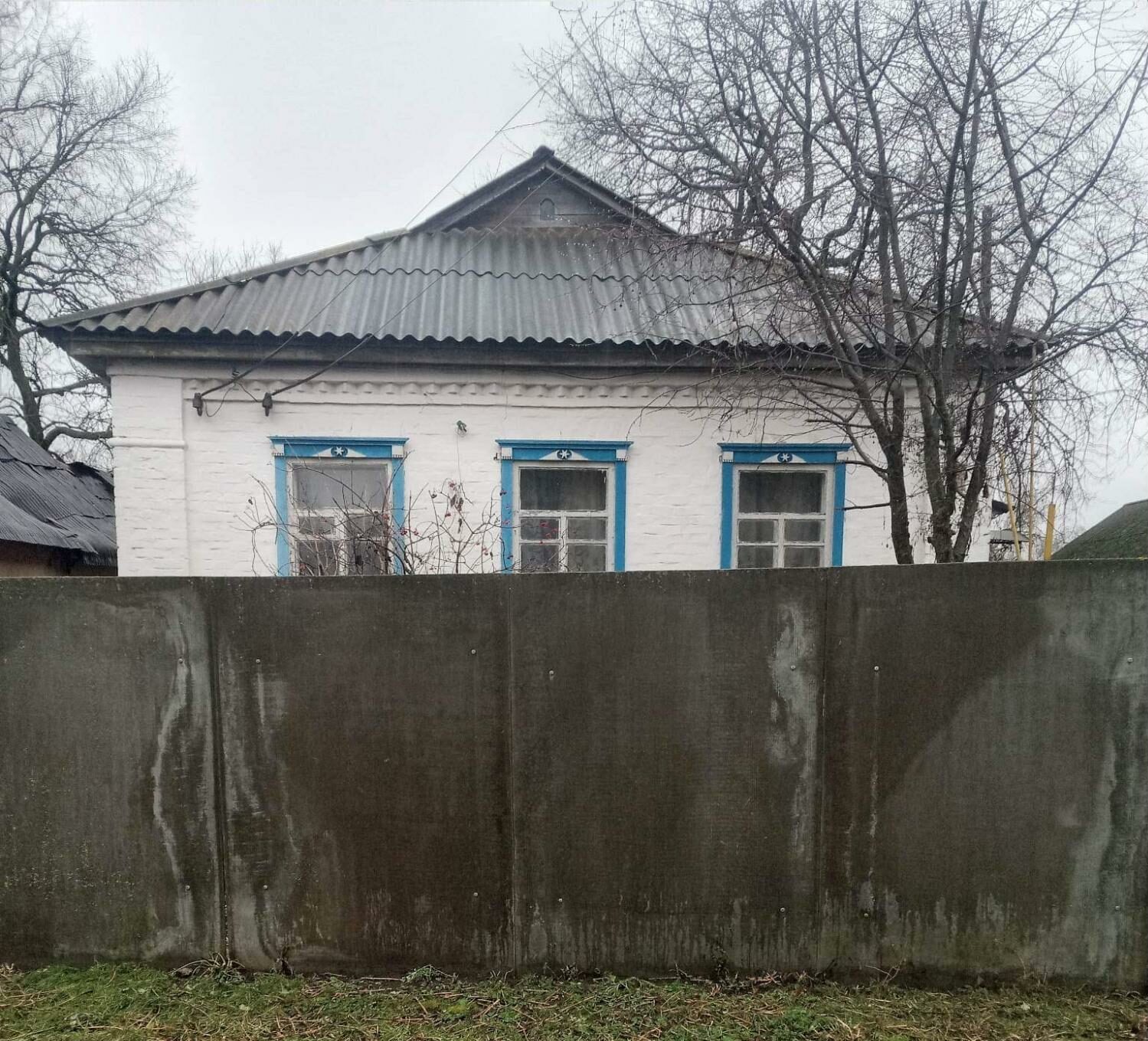
Locals single-handedly repaired abandoned houses, cleaned them, and did everything to prepare them for winter
Then the village residents decided to support the initiative — people single-handedly repaired abandoned houses, cleaned them, and did everything to prepare them for winter. At the same time, the village council helped the accepted IDPs with work — someone managed to get a job in the village and someone in neighboring communities.
A small village with 700 inhabitants took in 167 immigrants only by the end of 2022. Thirty-three of them decided to settle in the village permanently, but the most important thing is that these people were given the opportunity to spend the winter in warm, safe housing. There are many similar cases in Ukraine.
In addition, in many cities, there are Centers for assistance to survivors, where displaced persons can receive psychological, social, and legal aid. The state regularly pays certain sums to the displaced persons and also allows receiving grants from Diia digital governance app to start one's own business.
What is the problem?
Myth No. 3: other residents of communities suffer from the influx of IDPs
Another Russian narrative about IDPs is that they will be superfluous in the communities they will go to and that they will take jobs from locals. However, when new people enter the community, new businesses also come there, and often new specialists, who were sorely lacking before that.
What is the solution?
Save Business Now
In Ivano-Frankivsk, a city that has become one of the leaders in the number of accepted IDPs, they decided not just to meet individual IDPs but to help entire enterprises and companies. The initiative Save Business Now arose based on a charitable foundation after entrepreneurs began to call volunteers en masse. They asked for help with the evacuation of the business.
The people of Ivano-Frankivsk were not confused and quickly realized that such a flow of people was an opportunity to refresh the business landscape of their community.
According to Ruslana Parobetska, coordinator of the business support center, at first, everything was completely random. The idea arose to create a chat where people could get to know each other — both relocated businesses and local ones. Even after that, new types of support were formed.
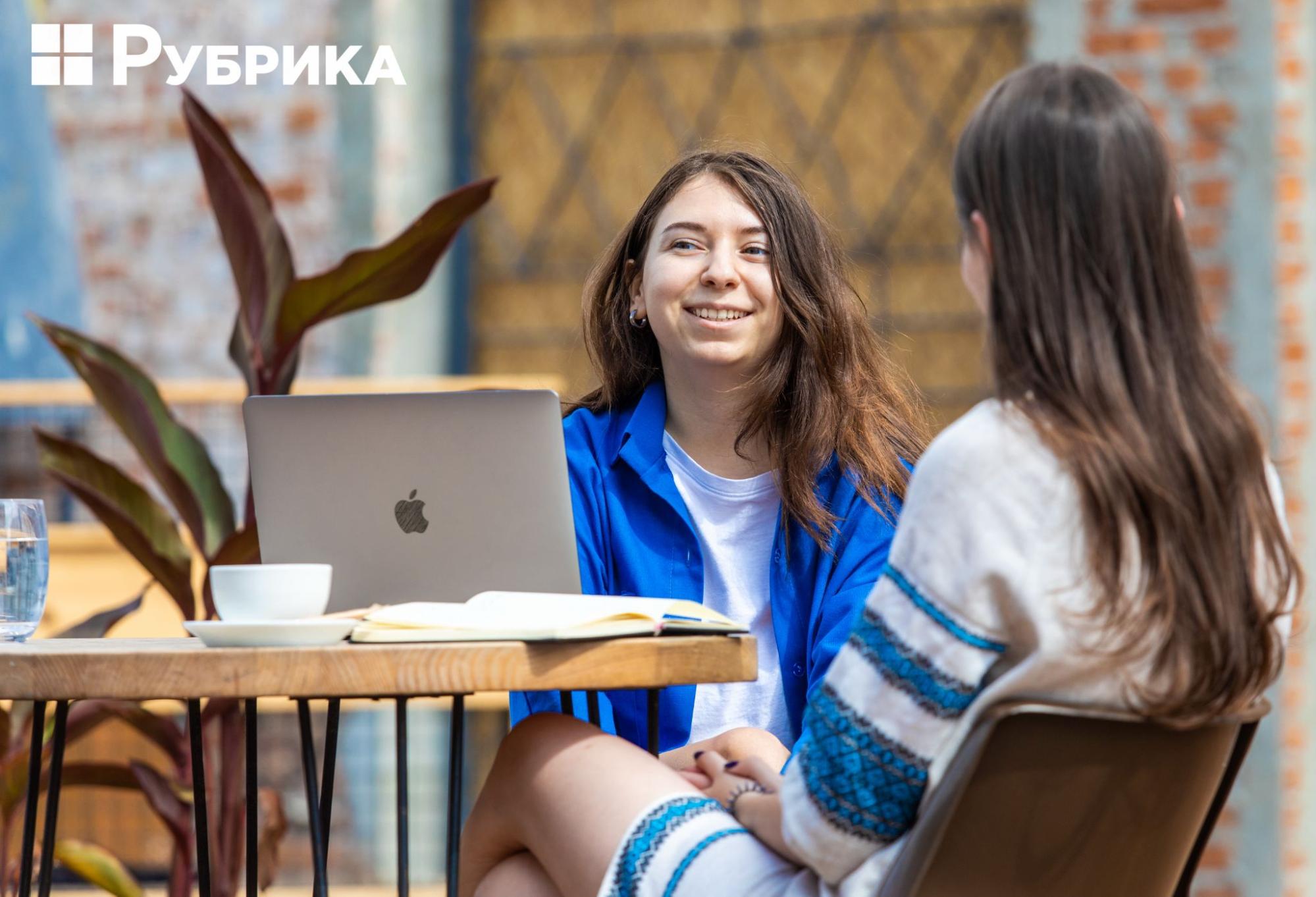
The initiative helped relocate 53 enterprises
As soon as an entrepreneur who wants to relocate their business from the frontline territories fills out the relevant application, Save Business Now starts helping with the search for premises, looking for people ready to provide expert advice and creating effective networking.
At first, the main request was the relocation and help with finding a place; now, it is consultations. "Very often, it is important for people who come to understand what the city is about because for a person who lived in Kharkiv and ran their business there, it is unusual that there are so many holidays in Galicia that we have slightly different pace of work, a different vibe. The most urgent request is probably networking," Parobetska explained to Rubryka.
During the first six months of the full-scale war, the initiative helped relocate 53 enterprises, and the number of business owners who were helped by consultations, lectures, and other types of cooperation is almost impossible to count.
What is the problem?
Myth No. 4: IDPs are persecuted for speaking Russian
The language issue became acute in Ukraine as soon as Russia began to interfere. In 2014, the occupiers justified their invasion by protecting the Russian-speaking population. Propaganda media incessantly filmed stories about how Russian speakers are hated in the west of Ukraine. However, everyone who came to any other city of western Ukraine from Donetsk or other eastern cities saw already in the first days how different the truth is from what Russia imposes.
What is the solution?
"I started remembering the words"
Kateryna Butenko is from Lysychansk, but on February 24, when Russia started its full-scale invasion, she left for Slovyansk with her children. She says that she once asked her 12-year-old daughter if she was afraid of war, and she answered: "Well, we will all die together." This was the moment when Butenko realized that she had to leave. The family went to Transcarpathia, although they were afraid of the language issue for a long time.
The family was anxious about how they would cross the language barrier. Butenkos usually speak either Surzhyk, a mix of Ukrainian and Russian, or Russian. When the family arrived in Uzhghorod, they had to go to a pet store to buy food for their cat, who traveled with the family. "I struggled with finding words in Ukrainian, but the shop assistant told me to calm down — since Uzhhorod borders four countries, any language is acceptable there," Butenko recalls. "We were surprised that they behave normally there, and no one points a finger. We heard completely different stories."
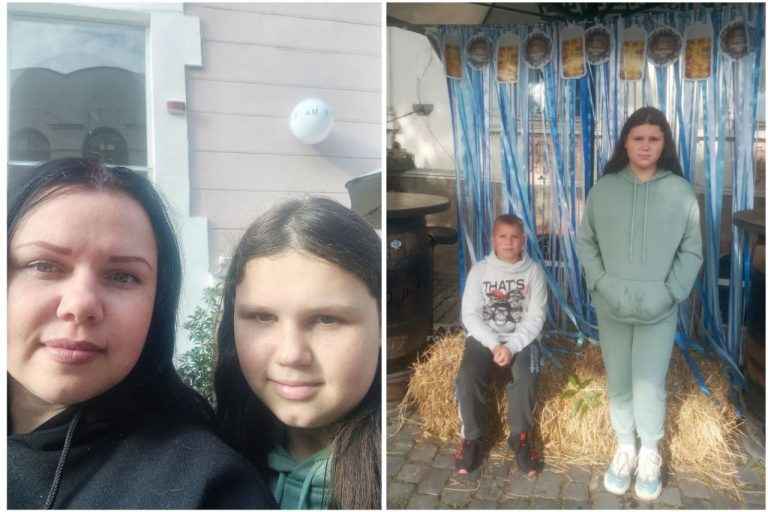
ABefore moving to Ukraine's west, the family was afraid of the language issue for a long time
At the same time, many Ukrainians who used to speak Russian in everyday life now want to switch to Ukrainian to distance themselves from the enemy's culture as much as possible. No one laughs at these people when they make mistakes. On the contrary, the Yedyni NGO organizes free classes and language clubs for those who want to learn Ukrainian.
Even more useful solutions!
No one needs quarrels between Ukrainians the way the enemies do. Russia has never abhorred fakes, misinformation, and one-sided interpretation of anything that does not benefit it.
Ukrainians' main task is to separate myths from the truth and build a state where nothing resembling the Russian propaganda apparatus will ever appear.
The material was created within the framework of "The same but different" project, which is implemented by the NGO Vox Ukraine together with Eastern Variant and Varosh with the support of the Unity for Action program, which is implemented by IREX in Ukraine with the support of the US State Department. The content is the sole responsibility of Vox Ukraine and does not necessarily reflect the views of IREX in Ukraine and the US State Department.



